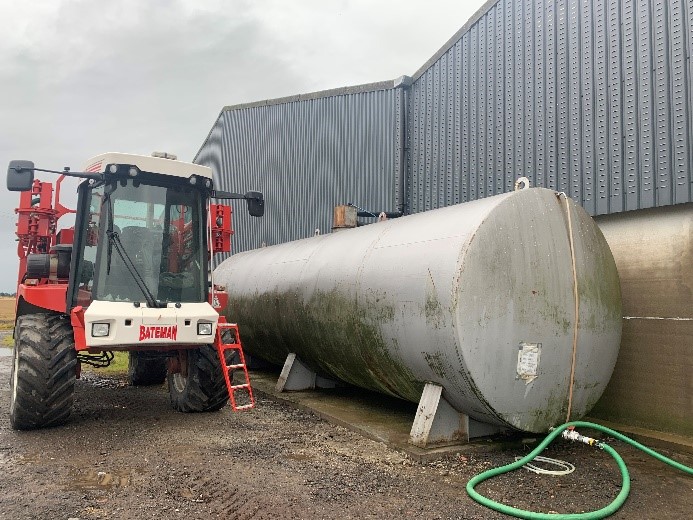Water Security in Scottish Dairying
10 September 2025In recent years, Scotland’s weather has grown more unpredictable, and even the famously wet Scottish climate is beginning to show signs of strain with shifting weather patterns. For farmers, one of the most pressing challenges emerging from climate change is water security, particularly during prolonged dry spells. Scotland in 2025 has been experiencing a lower average rainfall, reported by the Met Office in their monthly weather summaries.
Scotland is not immune to drought, SEPA (Scottish Environment Protection Agency) has reported increasing incidents of "water scarcity alerts" across parts of the country in recent summers. Most areas report that the stream flows drop below average, affecting both public water supplies and private abstractions.
During the recent Government Future Farming Investment Scheme (FFIS), which closed for applications on the 22nd of August 2025, there was a particular focus on claiming for items to include EID tag readers as well as water security. This included some funding toward items such as boreholes and water harvesting and storage equipment.
For dairy farmers, this means potential challenges in securing reliable water sources for livestock, cleaning, irrigation (where used), and forage production. Cattle need a consistent water supply, not only to maintain health and welfare but also to sustain milk yields. In hotter weather, lactating dairy cows can drink as much as 150 litres per day, putting pressure on supplies.
Reduced rainfall affects dairying in many ways, with reduced grass growth impacting grazing and silage production, leading to higher feed costs and lowering profit margins. Lower water availability can disrupt milking operations, cooling systems and hygiene standards, which are essential for milk quality and herd health.
Planning for Resilience
Water audits
Start with a farm water audit to understand where and how water is used, lost, or wasted. Identify opportunities to reduce usage without compromising animal welfare or milk hygiene. Some solutions may be very simple to achieve but could have a big effect. The Farm Advisory Service offers funding toward a water management specialist plan.
Water storage
Investing in water storage such as tanks or reservoirs can buffer the farm against short-term shortages. Capturing rainwater from roofs or hardstanding areas offers a sustainable and cost-effective option, particularly during winter when rainfall is plentiful.
Photo Credit: Fiona Salter, SAC Consulting

Efficient infrastructure
Maintain and upgrade water systems to reduce leaks and inefficiencies. Simple measures like fixing trough valves, insulating pipes, and using timers or float switches can improve efficiency significantly.
Alternative water sources
Consider diversifying water sources if feasible — for example, using boreholes (with proper testing and licensing), or working collaboratively with neighbouring farms on shared infrastructure.
Grassland management
Improve soil structure and organic matter content through rotational grazing and use of cover crops. Alleviating soil compaction can also help retain moisture in dry periods and improve forage resilience.
Herbal leys
The use of herbal leys may also help due to their varying root depths. Most grassland has been the traditional grass leys consisting of ryegrasses and white clover. These varieties are needed for their high production; however, they are susceptible to drying out in the summer due to their shallow root structure. A multispecies sward featuring different grasses, legumes and herbs are more drought tolerant.
During a drought in 2018 the Cotswold seed company observed that species such as Birdsfoot trefoil remained lush and green from late spring right through to early autumn and the forage herbs put down deep roots very fast, and the regrowth of lucerne post-grazing was impressive.
Take Early Action
As Scotland’s climate continues to change, water planning will become even more critical. By acting early and strategically, dairy farmers can not only weather dry spells but help to future-proof their businesses against growing climate uncertainty.
If you need more information, or would like to speak with an advisor, the FAS helpline is free. Call 0300 323 0161 or email advice@fas.scot
Sign up to the FAS newsletter
Receive updates on news, events and publications from Scotland’s Farm Advisory Service

